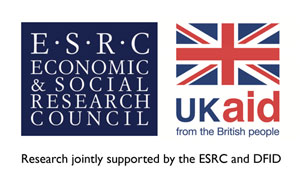Poverty Reduction and Regional Integration
A comparative analysis of SADC and UNASUR health policies

Methodology
We are researching SADC and UNASUR's regional agendas and ambitions, regional programmes of action and regional processes of policy development in relation to access to health care and medicines. We are also conducting fieldwork in Zambia, Swaziland, Bolivia and Paraguay, all of which are confronted with serious socio-economic challenges, low levels of service delivery and immense public health challenges, to understand to what extent SADC and UNASUR regional health policies are embedded in Member States.
Our data collection and data analysis uses mixed methods, comparative and participatory approaches and methodologies. We are working with a wide range of stakeholders from policy, practice and end-beneficiary communities throughout the research process using a mixed methods approach. Collaborative Participatory Action Research methods features centrally in this.
Generating new knowledge to support pro-poor regional health policies
Profound socio-economic and political inequalities all too often translate into poverty and health disparities. The development and implementation of pro-poor health policies is a positive response to these challenges. Regional organizations have begun to address critical health challenges, but their contributions to developing pro-poor health policies is not always apparent. At the same time, better knowledge about what regional institutional practices and methods of policy formation can help identify and support pro-poor health strategies needed to underpin effective and embedded action, nationally, regionally, and internationally.
Developing socially inclusive health policies is an area where the tangible benefits for citizens of greater regional cooperation in social policy can be demonstrated, and where regional leadership can make a clear difference. Using Participatory Action Research methods, a key strand of PRARI involves working with key partners in South America and Southern Africa to develop regional indicators of pro-poor health policy change and success.
Find out more about Participatory Action Research in PRARI.
Embedding pro-poor health approaches: global, regional and national agendas
Our research aims to contribute to contemporary debates about the role and effectiveness of regional formations in health-poverty reduction programmes and what actors such as international donors, civil society organisations, governments, business and philanthropic organisations can do to support pro-poor regional health and social policies.
The questions we ask in this project are timely and relevant. As we lead up to the post-2015 Sustainable Development Goals, and as the international community considers what are the key development priorities over the coming decades and how they will be achieved, PRARI seeks to contribute to ongoing dialogue and exchange on matters of contemporary global, regional and national social policy, including
- Health systems strengthening
- Poverty reduction
- Access to health care, medicines and social protection
- Sustainable development
- Social policy and regional integration
- South-South Cooperation
Click Here to view our publications
Click Here to view our project events




